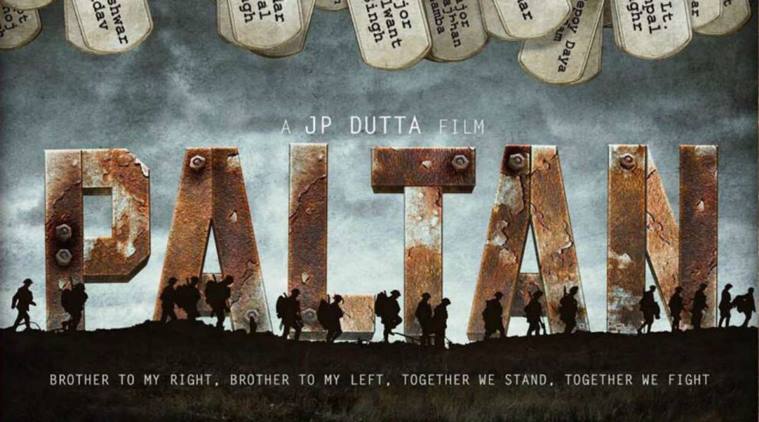Twelve years after his magnum opus, Umrao Jaan tanked badly at the box office, director J P Dutta, still well known for his epic war dramas such as ‘Border’ and ‘LOC Kargil’, has returned to the director’s seat once again, with his upcoming movie Paltan. To be released on 7th September, Paltan is a massive movie, starring an ensemble cast of stars like Arjun Rampal, Jackie Shroff, Sonu Sood, Siddhant Kapoor, Harshvardhan Rane, Gurmeet Chaudhary, Rohit Roy, Sonal Chauhan, Esha Gupta among others.
What makes this final film of JP Dutta’s war trilogy so unique is that Paltan will focus on the untold story of the 1967 Sino Indian clashes. This was where India clashed with China at two places, Nathu La and Cho La, over the incessant infiltrations by the PLA, i.e. the Chinese Army, and the independence of Sikkim, which was then a separate kingdom.
Jyoti Prakash Dutta needs no introduction. An illustrious film director, he had a mixed record before the release of the 1997 classic Border, based on the historic Battle of Longewala, catapulted him to the status of a legendary film director, which was further strengthened by the release of LOC Kargil in 2003. Though an average grosser, this film depicted the struggle of the Indian forces in extremely adverse conditions in which they won the 1999 Kargil War.
As such, JP Dutta is without any doubt the right choice for being at the helm of the affairs of such a prestigious project. If we believe on the media reports, he has left no stone unturned to maintain accuracy with the historical events, something that was slightly missing in Border. From employing real soldiers for the movie along with shooting in almost the same locations as in the actual events, JP Dutta wants to ensure that Paltan hits all the notes right in terms of a gripping, patriotic war drama.
Fought 5 years after the humiliating Sino Indian War of 1962, and barely 2 years after India whacked Pakistan black and blue in the 2nd Indo Pak War, forcing Pakistan to beg for a ceasefire, India registered an overwhelming victory over the Chinese forces, despite the heavy casualties incurred initially.
Also famous as the Battle of Nathu La and Cho La, these clashes were over two issues: China’s expansionist policy that aimed to bring the state of Sikkim, then an independent monarchy, into its fold, and their continuous ceasefire violations, much before Pakistan made it a nauseating norm.
Initially keeping a defensive policy, India resorted to dialogue, persuading the Chinese to stay within their limits. However, matters reached to the head when in response to the Indian side fencing the borders at the Nathu La pass in Sikkim, the Chinese Army opened fire, inflicting heavy casualties. It was then that the Indian Army had enough.
Boiling with rage, the Indian forces, with the wounds of the 1962 Sino-Indian War still fresh in their minds, struck back rather brutally. The Nathu La clashes that lasted for more than 3 days continuously resulted in a massive defeat for the Chinese forces, which were forced to retreat after losing a large number of soldiers.
Almost a fortnight later, on 1 October 1967, another clash occurred at the Cho La between the two on almost the same lines, and with the same results. This forced the then Chinese Premier, Zhou Enlai, to concede defeat and call for a ceasefire. According to the official records, the Indian side lost 88 soldiers with 113 others left injured, while the Chinese lost a whopping amount of at least 350-400 soldiers, a fact China hesitates to accept even today.
These battles were a fitting revenge for the humiliation we received in the 1962 Sino-Indian War. However, it is a matter of shame that not even a handful in this country even know about this victory. In this regard, JP Dutta’s decision to relive that victory on silver screen is nothing less than gold for the Indian audience. As Paltan looks all set to hit the silver screens on 7th of September, we hope that the JP Dutta, who became the symbol of iconic patriotism in Indian cinema for the late 90s, is back in action in the same mode as mentioned.
